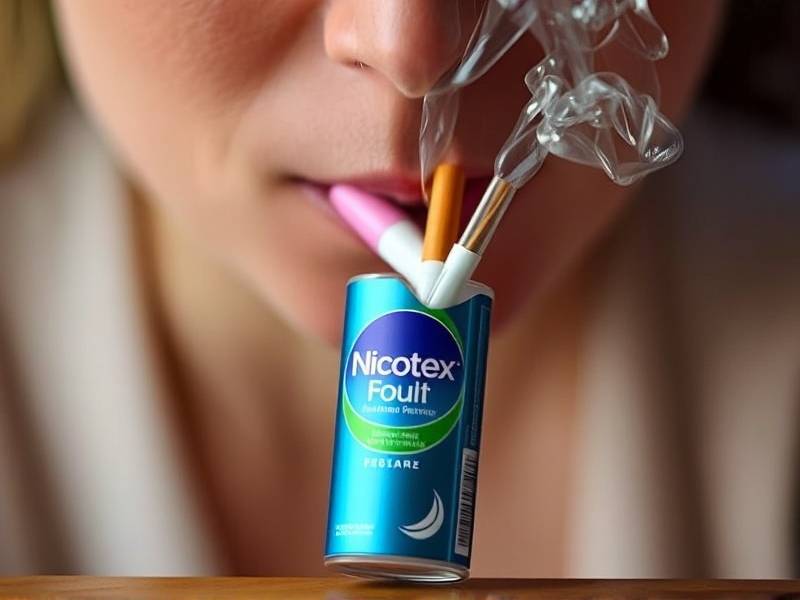Does Nicotex Really Help Quit Smoking? A Comprehensive Guide
Introduction
Quitting smoking is a challenging endeavor, and many individuals seek out various methods to aid in their journey. Nicotex, a nicotine replacement therapy (NRT) product, has gained popularity as a potential aid for those looking to kick the habit. But does it really work? This comprehensive guide will explore the effectiveness of Nicotex in helping individuals quit smoking, considering its mechanism of action, user experiences, and scientific evidence.
Understanding Nicotex
Nicotex is a lozenge that contains nicotine, which is the addictive substance found in tobacco products. By providing a controlled dose of nicotine, Nicotex aims to reduce withdrawal symptoms and cravings that often accompany smoking cessation.
How Does Nicotex Work?
The primary function of Nicotex is to deliver nicotine to the body without the harmful tar and other chemicals found in cigarettes. This allows individuals to experience the satisfying sensation of nicotine while gradually reducing their dependency on tobacco.

When you place a Nicotex lozenge in your mouth, it dissolves slowly over time. The nicotine is then absorbed through the mucous membranes in your mouth and enters your bloodstream. This process helps alleviate withdrawal symptoms such as irritability, anxiety, and increased appetite.
User Experiences
Many individuals who have tried Nicotex report positive experiences with the product. Users often mention that it helped them manage cravings and withdrawal symptoms more effectively than other methods. However, it's essential to note that individual results may vary.
Some users may find that they prefer using other forms of NRT or alternative methods for quitting smoking. It's crucial to consider personal preferences when choosing a cessation aid like Nicotex.
Scientific Evidence
Research studies have investigated the effectiveness of Nicotex and other NRT products in aiding smoking cessation. While some studies have shown promising results, others have yielded mixed outcomes.
A Cochrane Review published in 2018 analyzed 63 randomized controlled trials involving over 29,000 participants and concluded that NRTs like Nicotex can modestly increase quit rates compared to no treatment or placebo controls. However, the effect size was small, indicating that while NRTs can be helpful for some individuals, they are not universally effective.
It's important to note that success rates for quitting smoking can vary greatly among individuals due to various factors such as motivation, support systems, and personal circumstances.

Alternative Methods
While Nicotex may be effective for some smokers looking to quit, there are alternative methods worth considering:
- Behavioral therapy: Working with a therapist or counselor can provide personalized support and strategies for overcoming addiction.
- Pharmacotherapy: Other medications such as varenicline (Chantix) or bupropion (Zyban) have been shown to help some individuals quit smoking.
- Mindfulness techniques: Practices like meditation and deep breathing can help manage stress and reduce cravings.
- Nicotine gum or inhalers: These are other forms of NRT that some individuals may find more suitable than lozenges.
Conclusion
Nicotex can be an effective tool for some smokers seeking assistance with quitting smoking by providing controlled doses of nicotine while managing withdrawal symptoms. However, individual results may vary significantly based on personal preferences and circumstances. It's essential to consider alternative methods and consult healthcare professionals when exploring options for quitting smoking successfully. Remember that determination, support systems, and commitment play crucial roles in overcoming addiction.
